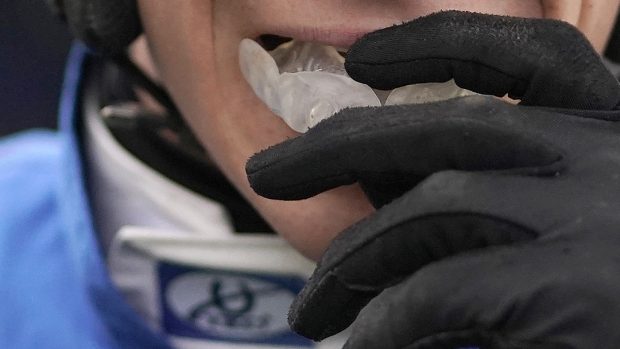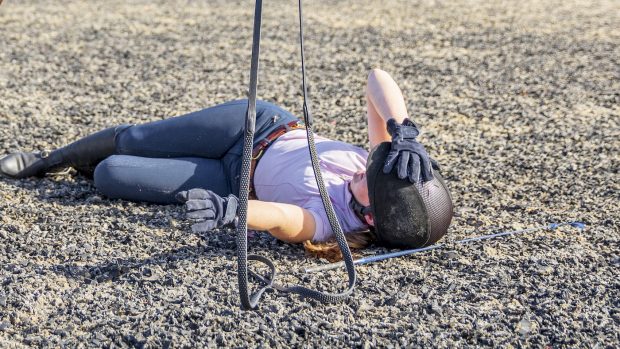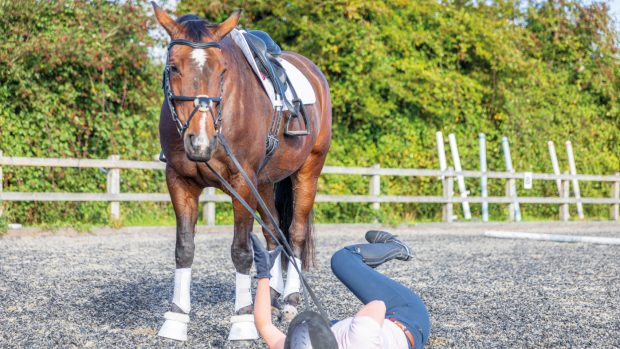The dangers of continuing to ride with concussion have been highlighted in a short film.
Leading experts in concussion and jockey health, as well as top jockeys Liam Tredwell and Martin Dwyer, spoke of the “collective responsibility” those in the industry have when it comes to head injuries.
The film was produced by the Jockey Education and Training Scheme (JETS) and focuses on some of the myths surrounding concussion and why it is so important for riders to take it seriously.
“I really don’t think jockeys are aware enough about concussion,” said 2009 Grand National winner Liam.
“If I had been educated and known that I could take myself out for a fortnight, or the period everyone advised, that could have been that.
“But lo and behold I kept battling on along the road of ‘I’ve got to be seen to be head down, grafting and riding’ and I was out for nearly six months.”
Derby-winning jockey Martin added: “Nine times out of 10 you think you’re fine, you don’t realise you’re actually suffering with something. I think that’s probably one of the biggest problems.”
British Horseracing Authority’s chief medical adviser Dr Jerry Hill warned some concussions can have delayed onset, meaning it takes time for the symptoms to start after a fall.
“If you ride with symptoms of concussion before it is resolved, it’s like you are riding when you’ve been drinking,” said Dr Hill.
He added this means performance will be poor, there is increased risk of sustaining another injury and it is “not very impressive” to a rider’s owners and trainers.
Emma Edwards, senior physiotherapist at the Injured Jockeys Fund, spoke of the cumulative effect repeat concussions can have and both the common and less recognised symptoms.
“A lot of jockeys don’t realise you don’t have to hit your head to have a concussion – it’s the rotation of the brain within the skull that causes the concussion rather than necessarily the bang on the head,” she said.
She added common signs are headache, nausea and vomiting, sensitivity to bright lights and noise, while less common symptoms can include feelings of anxiety or panic, difficulty sleeping, difficulty coping with a lot of people in the room, slower in processing and answering questions.
Dr Michael Turner, medical director at the International Concission & Head Injury Research Foundation added that racing has the “highest rate” of concussion compared to any other sport.
“You can get concussion from any impact that goes through your body and gives your brain a shaking,” he said.
“Racing is an all or nothing sport, once you’re up there you’re at risk and the problem with concussion is it slows you down, your instinct and your ability to keep out of trouble.”
Continued below…

Simple reading test could help detect concussion
A timed vision test could help detect concussion,

Concussion: are women more at risk? *H&H VIP*
Concussion is the most common form of head
Genetics could influence concussion recovery time *H&H VIP*
A recent study has indicated that athletes carrying
He stressed the importance of seeking medical advice, adding that the condition affects everybody differently and a person can have different symptoms from one concussion to the next.
“Jockeys fall off on the gallops and that [also] needs to be taken seriously, because youngsters are not going to come forward and say ‘I’ve got a splitting headache and double vision’,” he said.
“The trainers and people in the yard have to be really, really careful about that because they have a duty of care.”





















